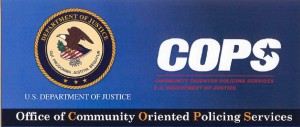Bucks President Offers Big Visions of Success On and Off the Court
With new design plans for the Milwaukee Bucks arena to be unveiled in the next several days, Peter Feigin, president of the professional basketball franchise, exuded nothing but enthusiasm during an “On the Issues with Mike Gousha” program Wednesday about the future of the team and what its impact will be not only in Milwaukee and statewide but across the globe.
“Awesome,” he said. “This is going to be miraculous.” But that will come to pass only with hard work, not only on the basketball court but throughout every aspect of what the does, Feigin told a large audience in the Appellate Courtroom of Eckstein Hall.
Milwaukee? Feigin said the team wants to do all it can to connect with the city, including connecting its players with the youth of the city and increasing its philanthropic work focused on youth, wellness, and education. And the new arena and the team’s operations as a whole will mean several thousand full-time jobs in the city.
Wisconsin? The Bucks want to be “Wisconsin’s team” in the way the Green Bay Packers and Milwaukee Brewers have become Wisconsin’s teams in their sports.

